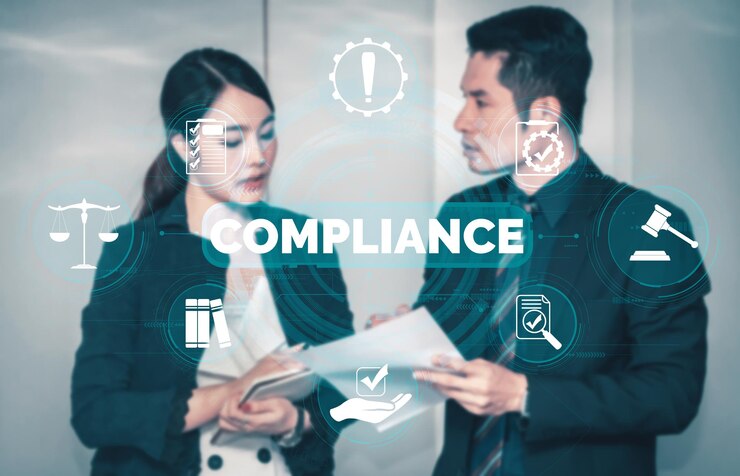In today’s digital landscape, data security and trust are paramount for businesses handling sensitive information. SOC 2 Type 2 compliance is a gold standard for service organizations that process customer data and want to demonstrate long-term operational effectiveness. Whether you're a startup scaling rapidly or an established enterprise expanding services, this certification strengthens credibility, fosters transparency, and ensures your internal controls meet industry expectations. Unlike Type 1, which evaluates controls at a single point in time, Type 2 examines their effectiveness over a period, usually six months, providing stronger assurance to clients and stakeholders.
What Is SOC 2 Type 2 Compliance?
SOC 2 is built around the Trust Services Criteria: security, availability, processing integrity, confidentiality, and privacy. When a firm achieves SOC 2 Type 2 compliance, it means an independent auditor has verified that the organization’s controls are not only designed correctly but are consistently operating throughout the review period. This deep dive fosters confidence in a company’s internal processes.
Why It Matters
- Client Trust: Clients, especially in SaaS, FinTech, and HealthTech, demand proof that their data is protected. Showing SOC 2 Type 2 compliance signals maturity and dedication to risk management.
- Competitive Edge: Many RFPs and contracts require SOC 2 Type 2 reports. Achieving compliance opens doors to high-value, security-conscious clients.
- Operational Excellence: The comprehensive audit process encourages companies to refine and automate their internal controls, increasing efficiency and reducing risk.
- Regulatory Alignment: While not mandatory, SOC 2 aligns well with GDPR, HIPAA, and other data protection regimes, simplifying broader compliance.
What Goes Into a SOC 2 Type 2 Controls List
A SOC 2 Type 2 controls list outlines all policies, procedures, and technologies verified during the audit period. Typical controls include:
- Access management: Role-based access, MFA enforcement
- Incident response: Procedures for detecting, responding to breaches
- System monitoring: Logs, alerts, and continuous monitoring
- Data encryption: At rest and in transit
- Change management: Formal testing and documentation of system updates
This list is tailored to an organization’s unique environment, ensuring that each criterion is thoroughly addressed. Audits review logs, configurations, staff training, and evidence of ongoing compliance.
Why Partner with INTERCERT
INTERCERT is a globally trusted provider of audit, certification, and assurance services in the field of governance, risk, and compliance. With deep industry expertise and internationally recognized credentials, we conduct independent SOC 2 Type 2 audits that help organizations validate their internal controls. Our experienced assessors evaluate your systems against the applicable Trust Services Criteria, supporting your efforts to demonstrate operational effectiveness, security, and accountability to clients and regulators.
Let’s Conclude
Achieving SOC 2 Type 2 compliance is more than a checkbox; it’s a strategic investment in trust, efficiency, and reputation. A well documented SOC 2 Type 2 controls list ensures protection across policies, processes, technology, and people. By partnering with INTERCERT, your organization can independently demonstrate its commitment to security and transparency. In a world of increasing data risk, SOC 2 Type 2 is not just a competitive advantage; it’s a necessary benchmark of trust.
In a world where data breaches and regulatory scrutiny are ever present, SOC 2 Type 2 isn’t just an advantage; it’s essential. Start your journey today and show the market that your organization means business when it comes to protecting what matters most.
A PHP Error was encountered
Severity: Notice
Message: Undefined variable: clientlist
Filename: views/blog_view.php
Line Number: 67
Backtrace:
File: /home/sysintercert/public_html/application/views/blog_view.php
Line: 67
Function: _error_handler
File: /home/sysintercert/public_html/application/controllers/Blogs.php
Line: 41
Function: view
File: /home/sysintercert/public_html/index.php
Line: 316
Function: require_once
A PHP Error was encountered
Severity: Warning
Message: Invalid argument supplied for foreach()
Filename: views/blog_view.php
Line Number: 67
Backtrace:
File: /home/sysintercert/public_html/application/views/blog_view.php
Line: 67
Function: _error_handler
File: /home/sysintercert/public_html/application/controllers/Blogs.php
Line: 41
Function: view
File: /home/sysintercert/public_html/index.php
Line: 316
Function: require_once

